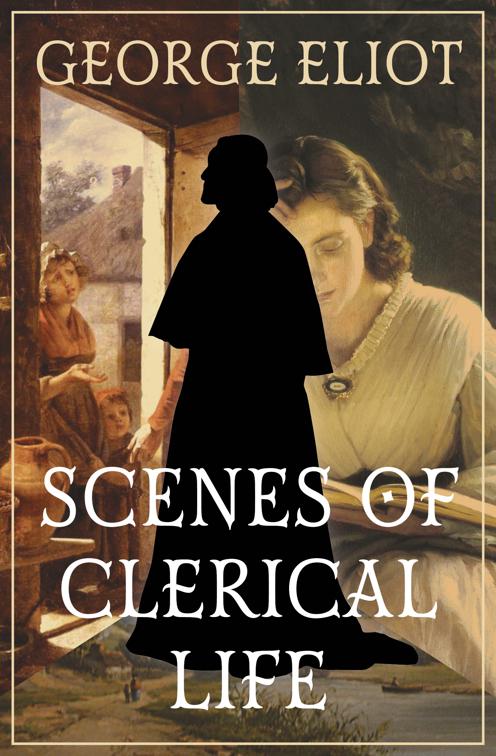
Scenes of Clerical Life
Three novellas that brilliantly portray English country and clergy life at the turn of the nineteenth century from the author of Middlemarch.
Initially appearing in Blackwood’s Magazine, this trio of linked stories comprises George Eliot’s first published work. Together they form a portrait of small-town life in Midlands, England, where changes are affecting both society at large and religious beliefs and institutions.
In “The Sad Fortunes of Reverend Amos Barton,” the clergyman struggles to raise funds for church repairs and perform his parochial duties, while a target of gossip—both good and bad. Meanwhile, few in Shepperton can find fault with his shy and hardworking wife, who cares for their six children, stretching Barton’s meager salary—and herself—to the limit.
Set before the arrival of Amos Barton, “Mr. Gilfil’s Love Story” features well-liked parish priest Maynard Gifil, who is known for smoking long pipes and preaching short sermons. Shockingly tumultuous events lead up to his marriage—including a love triangle, deception, and a murder plot.
An argument over religious doctrine splits the market town of Milby into two factions in “Janet’s Repentance.” With the arrival of Reverend Tryan, a rumor spreads that Evangelicalism has invaded the parish, angering local lawyer Robert Dempster. But his long-suffering wife finds in Tryan a kindred spirit, leading her to embark on a new life.
“The exquisite truth and delicacy, both of the humour and the pathos of those stories, I have never seen the like of.” —Charles Dickens
“A first-rate novel, and its author takes rank at once among the masters of the art.” —The Times